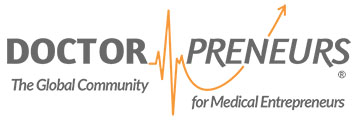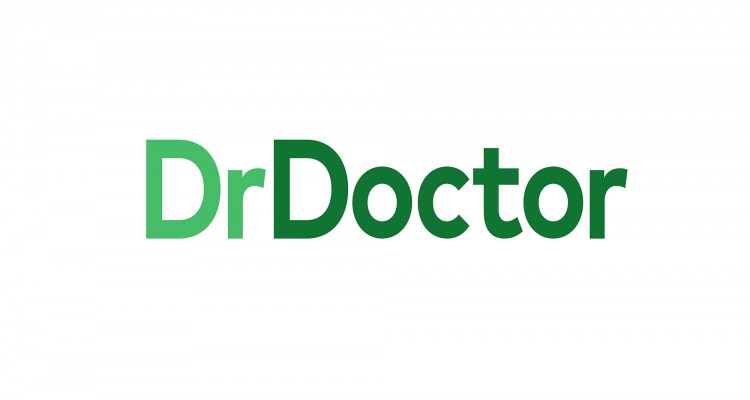Tom Whicher is Founder of DrDoctor & NHS Innovation Accelerator Fellow. Tom is a biomedical engineer by background and worked for a management consulting firm before identifying an opportunity to improve hospital outpatient appointment bookings. In 2012, he launched his own company, DrDoctor. DrDoctor aims to improve communication around scheduling outpatient appointments between patients and hospitals. At the time of interview, DrDoctor was active in six acute trusts in the UK including Guy’s and St Thomas’ NHS Foundation Trust and Great Ormond Street Hospital in London, and serving over 7 million patients.
Why did you decide to start DrDoctor?
That takes us back to 2012. At the time I was working for a management consultancy firm. I happened to be put on some healthcare projects but I didn’t know much about healthcare at that point. I had started working on some tools and doing internal projects.
I remember one day I was sitting in an outpatient department, watching different people coming in. They carried all these different bits of paper with different times and dates. A lot people were being sent away and being told the date on this paper was wrong or it had been changed. I thought to myself there had to be a better way of doing this. There had to be a way of enhancing this process with technology to improve the experience of these patients.
DrDoctor was really born from a frustration I experienced watching these patients struggling to get the appointment they needed at the right time.
Has your bioengineering background been useful in building DrDoctor?
In a way I think so. We’re very data-driven people and we approach every problem with an engineer’s eye. But I think that what we do really well is bringing together data and engineering with the human element. It’s neither just about numbers on the screen nor just about the patient experience either. It’s about finding that sweet spot where patient experience and process come together to make something better than either alone
Congratulations on the NHS Innovation grant. How do you think this will help DrDoctor continue to grow and support the NHS?
It’s a really big thing for us because it’s a sign that central NHS thinks what we’re doing is a good idea! We’ve been doing this for 5 years. There are number of people in the UK trying to create change using technology and who think there is a better way of delivering healthcare. Getting the grant means that NHS England has looked at what we’re doing and they think we’re doing something right for patients and finances. It’s really, really big for us to get the recognition and it also allows us to scale. As a business we’re at a point where we know what we’re doing works. What I’m interested in is how we reach more patients and help enable more people access to care.
Have there been any challenges in scaling so far?
What’s really interesting is going from Minimum Viable Product and proof of concept to product marketing. At every point, as a founder, you need different skills. You go from being a hustler to a data scientist to a manager and recruiter. For me, the biggest challenge was changing gears. Going into those different mindsets while remaining curious is difficult. Each time as we go to the next step in scale, I have to find the new set of skills or find people to help me. That’s where we’ve been very lucky to find really good team members to come join us.
What are the plans for DrDoctor in 5 years?
At the moment, we work with 11 NHS hospitals and about 7 million patients a year. We want to be the biggest provider of the end-to-end patient journey in the UK. We want to be helping hospitals move towards value-based care. Our strategy has always been to help their administration get the that bit right. And then making sure patients get the right care at the right time, and we want to do that internationally. In five years time I hope we have sites in US, Europe, Middle East, and Australia. We are just beginning that next step of growth as we go from being a successful UK-based business to becoming an international one while still thinking about value and how to deliver that to patients and providers.
What kind of data sharing and aggregate data analysis can be expected?
Data is really interesting in 2018. We all know it’s an unlocked treasure trove of science and learning. By adding various data sets together, the more breakthroughs that will come. However, there are challenges with European data regulation that will come and make that much more difficult. We will need far more explicit consent and we will need to make it easier for patients to remove themselves from datasets.
For DrDoctor what will move the needle the most is combining aggregate datasets with individual patient-level journey. What we’re looking at now is whether we get population level benchmarks on what a healthy patient population should look like and then start to use the individual’s data to point them out as outliers so that they get better care sooner. The data conversation will move away from just using big data sets to get insights and towards helping the individual with their own data to make sure they get better care earlier.
People are more data savvy now than they have been. Historically, we may have used data in ways that were opaque and the patient was not aware. In 2018 and 2019, it’s going to be about using the data in a really transparent way. And engaging and informing the patient on how the data is being used so it’s much more of a partnership.
In 2018 and 2019, it’s going to be about using the data in a really transparent way.
Are there any new features planned?
We’ve got a lot coming feature-wise. As I said earlier, we’re doubling down on value-based care. We’ve got a huge amount of work and effort into outcome collection. For example, how do you collect outcomes along the journey and pathway? How do you then use those outcomes to inform the next steps in scheduling? We think that will make a massive difference to patients. Can you get rid of those unnecessary repeat appointments around a chronic care pathway? Our major focus is on helping clinicians be smarter about how they work and to act based on need rather than time.
Our major focus is on helping clinicians be smarter about how they work and to act based on need rather than time.
How many clinicians do you have on your team and how do you recruit them?
Interestingly, so far we have not had any clinicians on our team. But we are about to hire our first. Historically we have gotten our clinical input from them as customers. I would sit down with the team of clinicians and spend some time understanding what they needed. Then we would develop the product alongside them. That has worked brilliantly for us and for them to date. But we’ve just reached a point where it’s important to have a clinician join our team full time and we’re looking for others. In terms of recruiting, we would look for people who excel in clinical practice but have also shown curiosity and interest in other areas particularly problem solving. Being really good at a startup is about being really good at problem solving. Which is a skill that obviously clinicians so often have, if you can diagnose a disease you’re a great problem solver. That’s super valuable in all startups. Not just healthtech but everywhere.
Being really good at a startup is about being really good at problem solving.
Are there any other startups out there you find particularly exciting?
Healthy.io is really exciting. They’ve got a product which a urine dipstick test that can be done at home. It’s very low cost per unit and significantly cheaper than coming into the hospital. And the way they’ve applied the technology has been really smart. They’ve really thought through design of the product and usability. Making it something anyone can pick up and use while delivering results remotely. That’s really exciting so they’re my Number 1.
What advice do you have for budding entrepreneurs?
In health at the moment, it’s as good a time as any to jump in. The market has moved a bit more slowly that others have, until recently. But now people are really looking for solutions. Whether it’s the UK NHS where, because money is short, people are really keen or in the rest of the world where people have woken up to the fact there are a much better ways to deliver care. I think people are more open than they have ever been to change and innovation. So now is a great time but if you do jump in, know that you’re going to need a bit more patience than crypto or social media and other markets. Healthtech is a slower burn but I think the reward is much higher both potentially financially and from a day to day reward.
Healthtech is slower burn but I think the reward is much higher both potentially financially and from a day to day reward.
Anything to add?
We are recruiting! We are looking for great people to join us: clinicians, software developer, bizdev and implementation. So pretty much in all areas.


